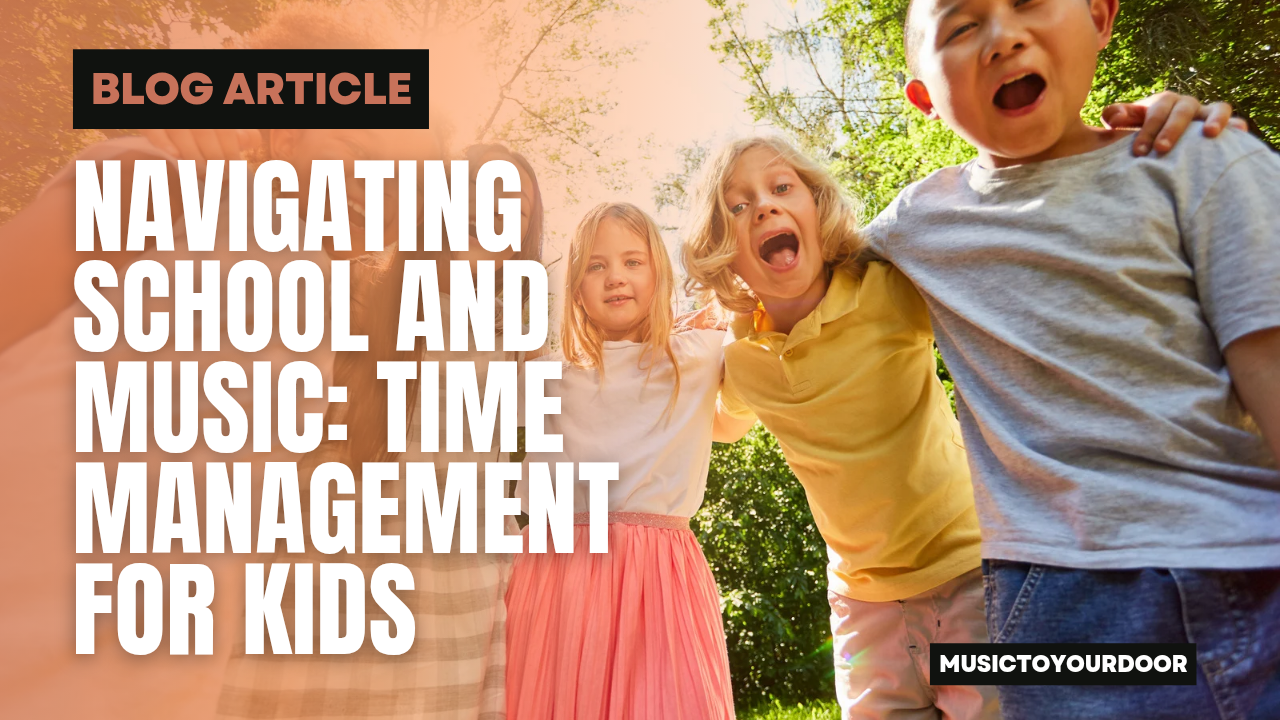Introduction: Can Kids Juggle School and Music?
Ever watched your child struggle to fit in homework, music practice, and a bit of downtime? You're not alone. Many Aussie families find it challenging to balance school commitments with extracurricular activities like music lessons.
But here's the good news: with effective time management strategies, children can excel academically while nurturing their musical talents. Let's explore how.
Why Time Management is Crucial for Kids
Building Essential Life Skills
Time management isn't just about keeping a schedule; it's about teaching kids to prioritize, plan, and execute tasks efficiently. These skills are invaluable, not just for school but for life.
Music Enhances Discipline and Focus
Engaging in music lessons requires regular practice, patience, and perseverance. These attributes naturally spill over into academic pursuits, enhancing a child's overall performance.
The Challenge: Balancing School and Music
Overlapping Commitments
School assignments, exams, and music recitals often clash. Without proper planning, children may feel overwhelmed, leading to stress and burnout.
The Risk of Overcommitment
In Australia, it's common for kids to be involved in multiple extracurricular activities. While this is commendable, it can lead to overcommitment, affecting both academic and musical progress.
Strategies for Effective Time Management
Crafting a Balanced Schedule
-
Prioritize Tasks: List out school assignments, music practices, and other activities. Identify what's urgent and important.
-
Set Realistic Goals: Instead of aiming for perfection, focus on consistent progress in both academics and music.
-
Allocate Specific Time Slots: Dedicate fixed times for homework and music practice. Consistency builds habit.
Leveraging Tools and Resources
Utilize planners, calendars, or apps tailored for kids to track assignments and practice sessions. Visual schedules can be especially helpful for younger children.
Incorporating Downtime
Ensure your child's schedule includes breaks and leisure activities. Downtime is essential for mental rejuvenation and prevents burnout.
Role of Parents and Educators
Open Communication
Regularly discuss your child's schedule, challenges, and achievements. This fosters trust and allows for timely interventions if needed.
Guiding Without Micromanaging
While it's essential to provide structure, allow your child some autonomy. This encourages responsibility and self-discipline.
Celebrating Milestones
Recognize and celebrate achievements, big or small. This boosts morale and motivates continued effort.
Real-Life Aussie Examples
Emily's Journey in Melbourne
Emily, a 10-year-old from Melbourne, balances school and violin lessons. By setting a consistent after-school routine, she dedicates 30 minutes daily to practice, leading to noticeable improvements in both her academics and music.
Liam's Experience in Brisbane
Liam, a 12-year-old from Brisbane, struggled initially with time management. With guidance from his parents and teachers, he started using a planner, allocating specific times for homework and guitar practice. Over time, he became more organized and less stressed.
Conclusion: Empowering Kids for Success
Balancing school and music is achievable with effective time management. By fostering these skills early on, children not only excel academically and musically but also develop essential life skills that serve them well into adulthood.
Remember, it's not about cramming more into the day but making the most of the time available. With the right strategies and support, your child can harmoniously navigate the worlds of school and music.
